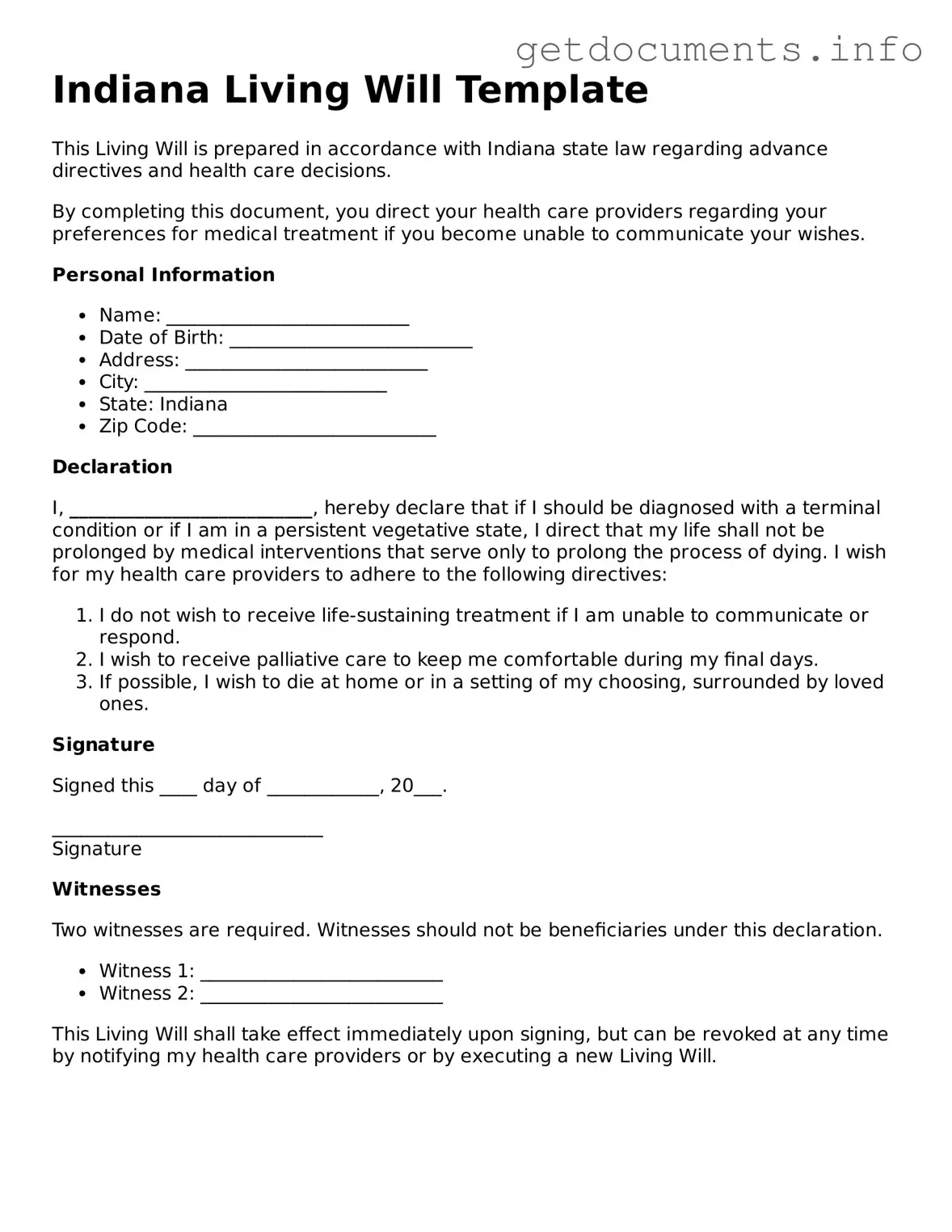Free Living Will Template for Indiana
The Indiana Living Will form is a legal document that allows individuals to outline their preferences for medical treatment in case they become unable to communicate their wishes. This form ensures that healthcare providers respect the individual's choices regarding life-sustaining procedures. To take control of your healthcare decisions, consider filling out the form by clicking the button below.
Access Living Will Editor

Free Living Will Template for Indiana
Access Living Will Editor
Got places to be? Complete the form fast
Fill out Living Will online and avoid printing or scanning.
Access Living Will Editor
or
⇩ PDF File
